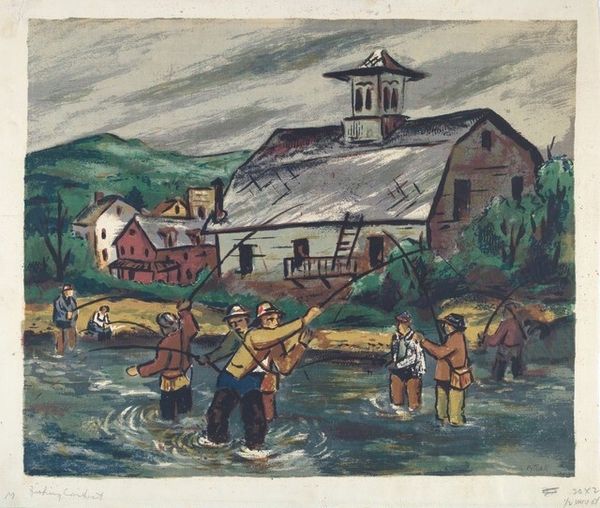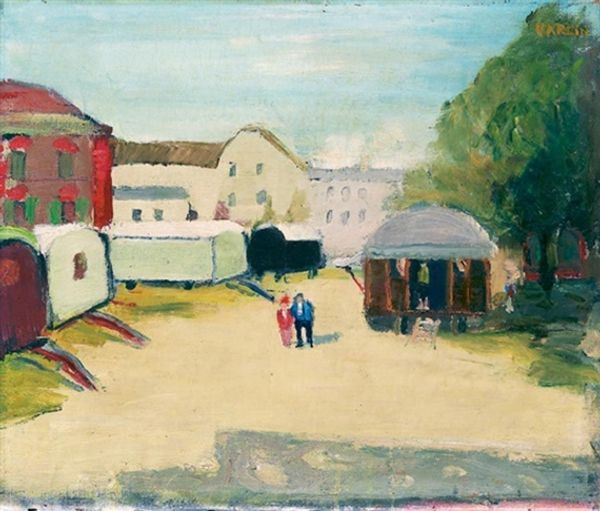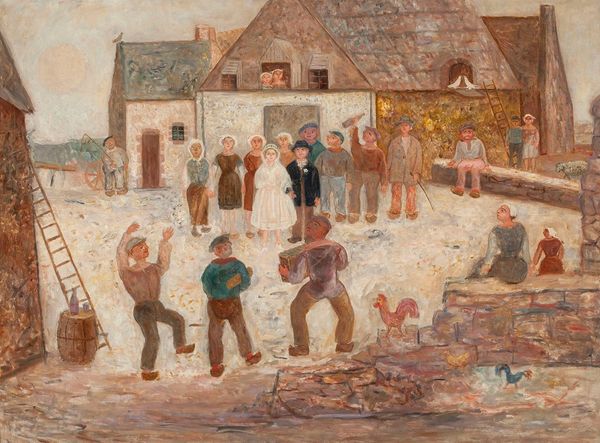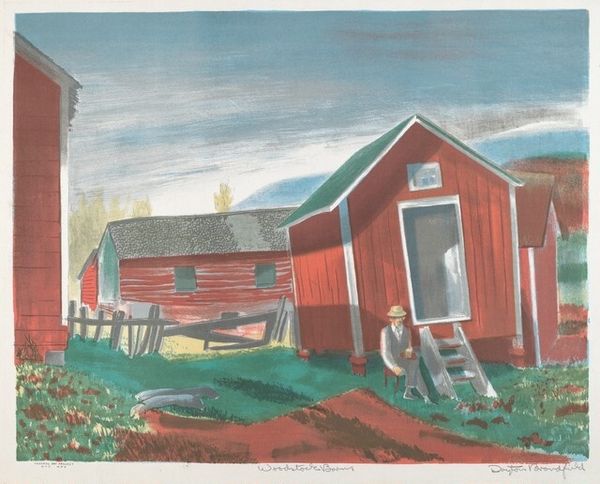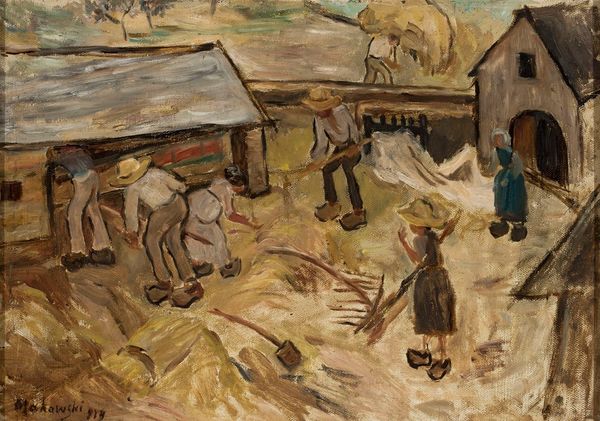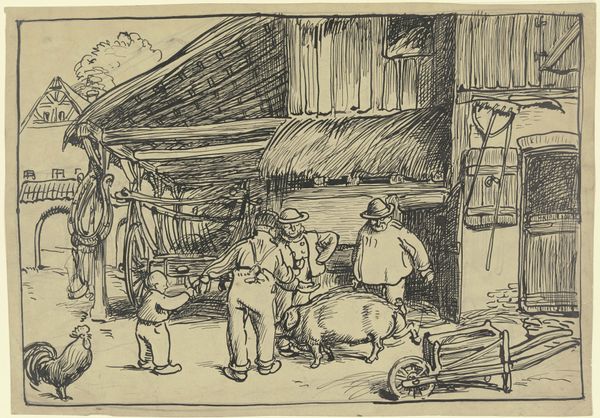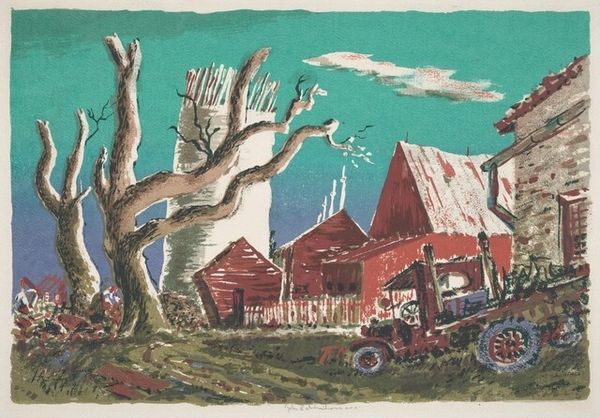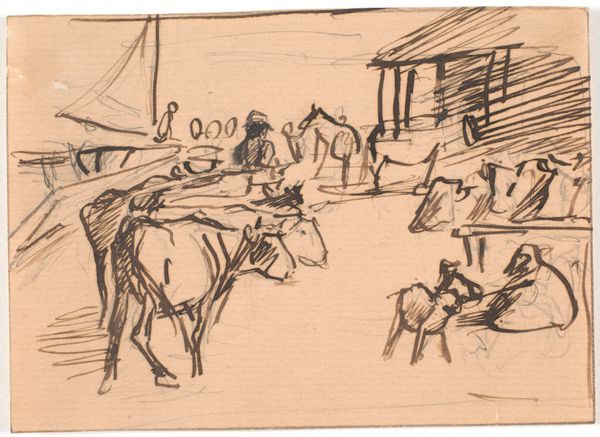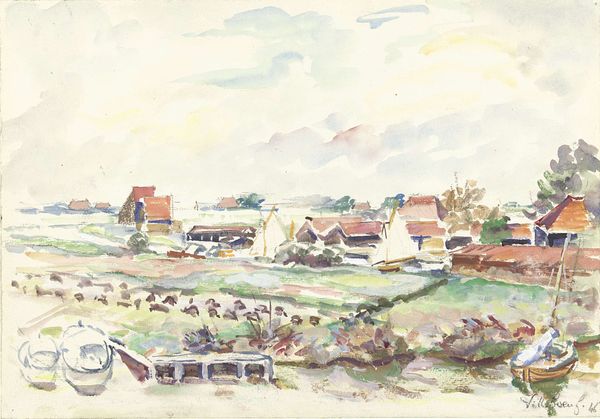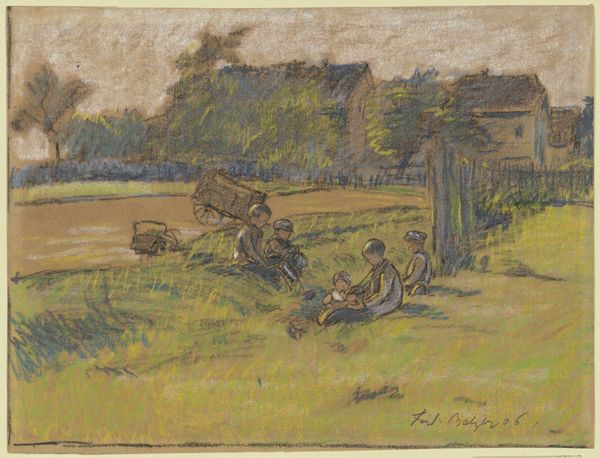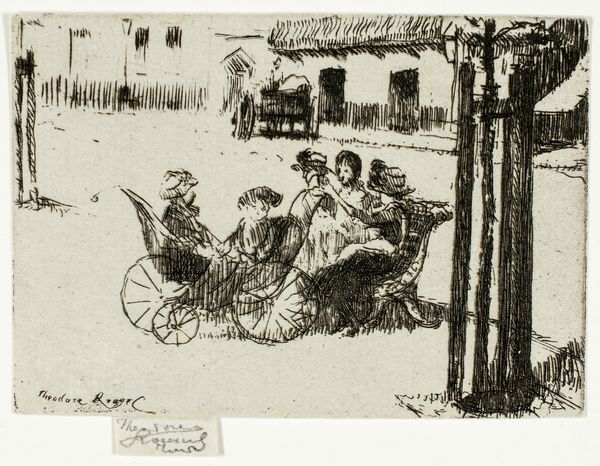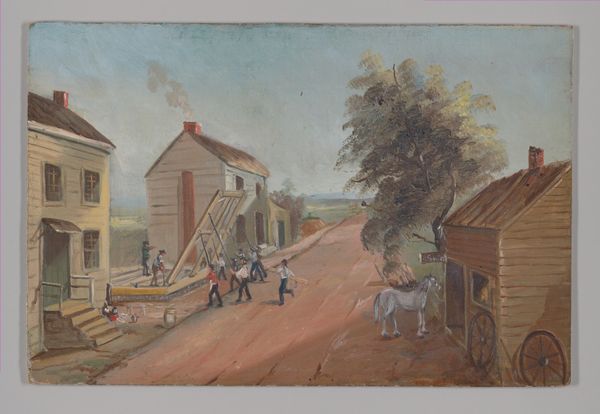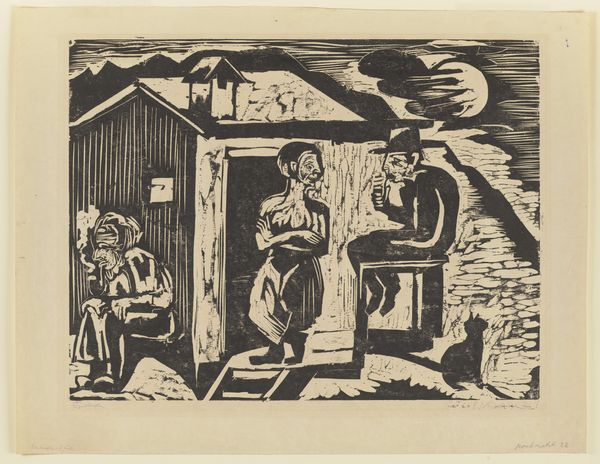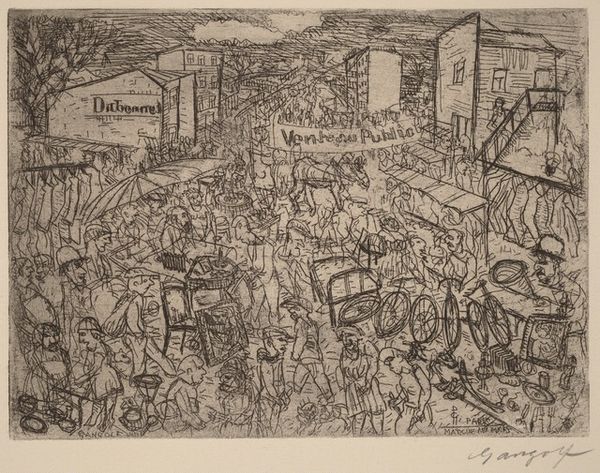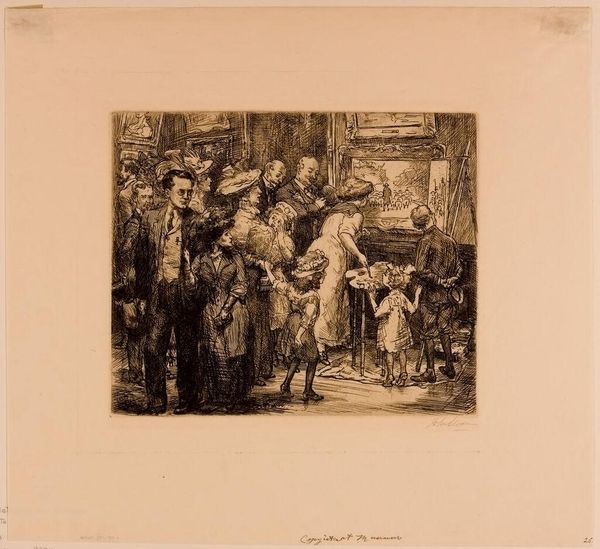
print, linocut, etching
# print
#
linocut
#
etching
#
landscape
#
oil painting
#
folk-art
#
naive art
#
watercolour illustration
#
genre-painting
#
modernism
#
regionalism
Copyright: National Gallery of Art: CC0 1.0
Curator: We’re now looking at Harry Shokler’s "Untitled (Auction)," an etching from 1942. It depicts what looks like a bustling community gathering. What are your first impressions? Editor: There's a charming naïveté to the perspective and colour palette. The forms are simplified, almost childlike, and there’s a strong emphasis on texture in the linework which imparts an impression of spontaneity. Curator: Indeed. And what I find compelling is the way Shokler situates this idyllic scene against the backdrop of a specific historical moment—1942. Think about the war, rationing, and how such local events would become lifelines to preserve social bonds during a traumatic and uncertain period. Editor: I appreciate how you highlight its grounding within a larger historical context. Though formally speaking, the clustered arrangement of figures and buildings creates a captivating interplay of light and shadow. Curator: Beyond that, consider the gender dynamics; what roles are these women occupying within this local economy? Look closer, what are their social roles beyond domesticity and child-rearing in times of crisis? Are these roles empowered or restricted? Editor: Your reading brings the political into focus. But look at the subtle compositional techniques; notice how the arrangement of forms create horizontal and vertical axes which structure the image. There’s an undeniably rhythmic and organized quality. Curator: The image also challenges conventional notions of who gets to participate in economic exchanges, bringing visibility to a community often overlooked in broader historical narratives. Editor: That’s fascinating. Shokler definitely captured a captivating narrative, no matter which lens you choose to view it through. Curator: Agreed. It’s a reminder that even seemingly simple scenes are brimming with social and historical meaning if we pause to unpack them.
Comments
No comments
Be the first to comment and join the conversation on the ultimate creative platform.
